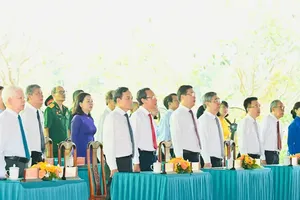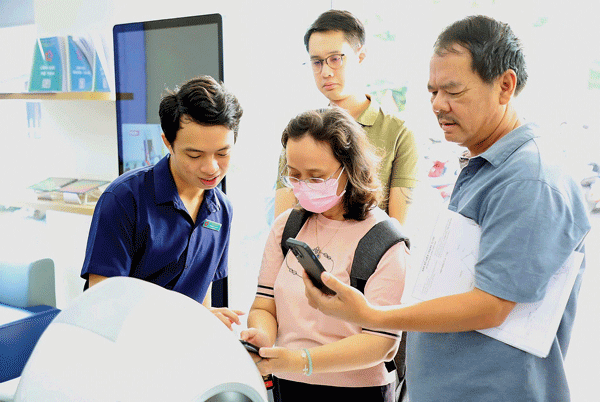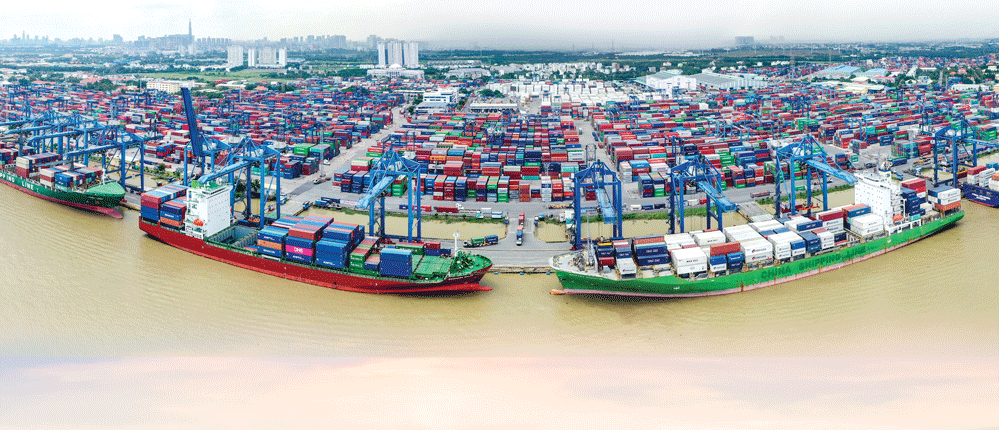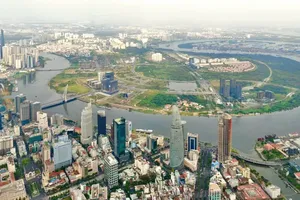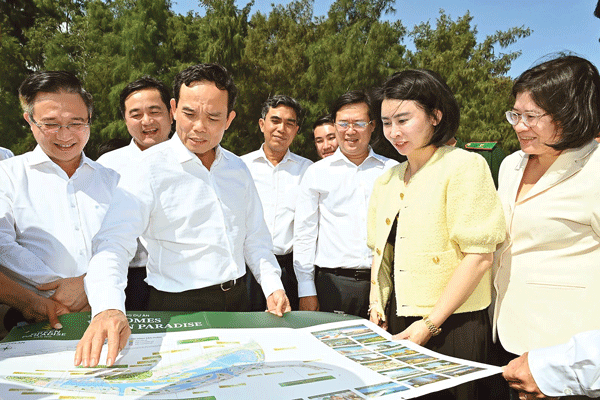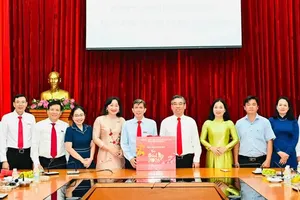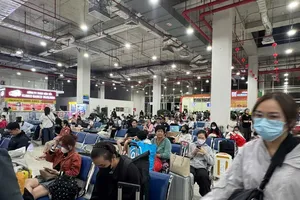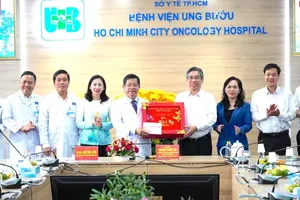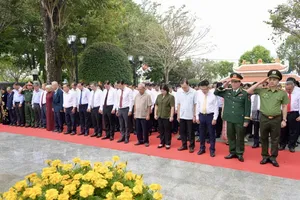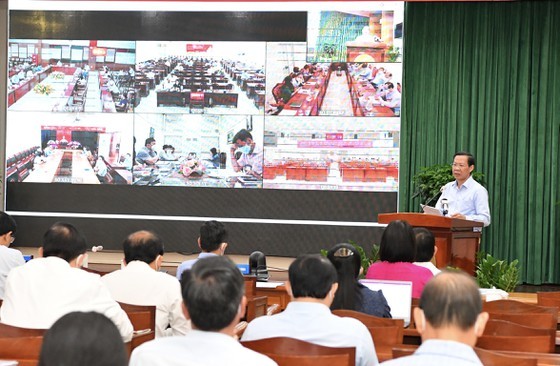 At the meeting (Photo: SGGP)
At the meeting (Photo: SGGP)
He made the statement at this morning's online conference to review the administrative reform work in 2021 and implement the tasks in 2022 held by the municipal People's Committee.
Speaking at the conference, Mr. Phan Van Mai assessed that in the impact of the Covid-19 epidemic in 2021, Ho Chi Minh City has made great efforts in administrative reform. The epidemic prevention and control alone has taken up all the time and personnel while Ho Chi Minh City still has to carry out the urban government with certain disturbances in terms of staff at the beginning of the term.
He also noted the bright spots of administrative reform, that is, in the face of difficulties, citizens’ and businesses’ satisfaction with public servants and public services had increased.
Deputy Chairman of the HCMC chapter of the Vietnam Fatherland Front Ngo Thanh Son said that in 2021, the Vietnam Fatherland Front Committee made nearly 17,000 calls to get opinions of people and businesses about their satisfaction with the administrative improvement in the city
The survey results show that the overall satisfaction level of Ho Chi Minh City's departments and branches, districts, and Thu Duc City has increased compared to 2020. Citizens and businesses have shown their satisfaction to the Department of Planning and Investment.
However, the Vietnam Fatherland Front Committee recorded a few unsatisfied opinions of people and businesses because of unclear administrative procedures.
He suggested that leaders of responsible agencies continue to analyze and see positive aspects to accelerate this further in 2022 and have synchronization and replication throughout the city.
In addition to those positive aspects, Chairman Phan Van Mai also frankly acknowledged the problems arising after a very difficult year due to the Covid-19 epidemic.
These problems have come up because the impact of the epidemic is so massive that HCMC also faces difficulties; therefore, all leaders and staff in state organizations at all levels should analyze how to further transform it to suit each sector and each district.
Furthermore, the digital transformation in administrative activities has reared its ugly head after the fourth wave of the Covid-19 epidemic.
According to him, before the epidemic, administrators in Ho Chi Minh City were thinking that the southern city has been applying digital technology in the top group of the country. But in fact, when the epidemic occurs, the operation process, infrastructure database, and legal framework on the digital platform face many difficulties. Fragmentary data can’t link agencies.
The city has the potential for digital transformation, but there have been so many problems during the application of digital transformation; accordingly, it is necessary to raise awareness and change people’s behavior for practical results.
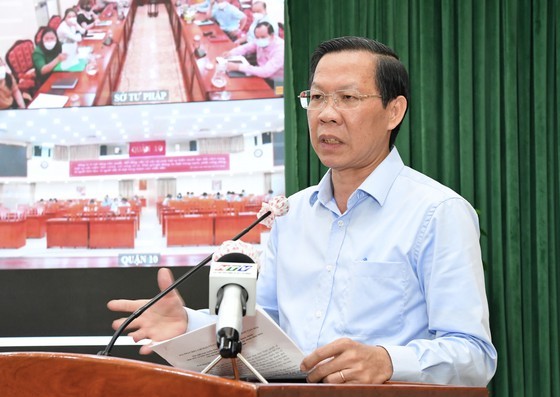 Chairman Mai speaks at the meeting (Photo: SGGP)
Chairman Mai speaks at the meeting (Photo: SGGP)
In addition, agencies must select the most frequently used administrative procedures amongst more than 1,700 ones to carry out digital transformation.
In addition to the above issues, Chairman Phan Van Mai also said that there has been a bottleneck in the coordination process between specialized agencies, levels and sectors when looking back at 2021. This must be tackled. Above all, he emphasized the great role of the Office of the People's Committee of Ho Chi Minh City in receiving documents, monitoring the processing progress, and setting up a working group to inspect the handling of sectors and localities.
From the analysis above, the Chairman of HCMC asked agencies, sectors, and localities to review the digital transformation in their organizations to have appropriate solutions in 2022.
Among the tasks in 2022 that need to be focused on, Mr. Phan Van Mai said, HCMC this year will review the implementation of the National Assembly’s Resolution 54 on piloting specific mechanisms and policies to develop the southern metropolis.
Besides, Ho Chi Minh City should also consider whether there should be a special urban law, or a legal framework for a special urban area to suit HCMC.
As a result, he suggested that agencies and units continue to give opinions on the specific mechanism for Ho Chi Minh City to help the city make a breakthrough in the future, according to many experts.
Regarding the implementation of the 2022 theme, which is "Safe adaptation, flexibility, effective control of the Covid-19 epidemic, continuing to improve the quality of urban government construction, improving the investment environment, accompanies enterprise", he suggested that it is necessary to focus on handling issues related to people and businesses, and set up working groups to deal with each group and each job. Each sector, each locality must have a list of cases that need to be resolved monthly and regularly updated.
During this conference, the Chairman of the People's Committee of Ho Chi Minh City also directed that in 2022, Ho Chi Minh City should raise awareness about the role of coordination between sectors, localities, and civil servants and improve online public services at level 3 and level 4.
Regarding the construction of e-government and digital transformation, Mr. Mai said that it is necessary to unify awareness to jointly implement to ensure synchronization and connectivity by establishing a digital system from the city to the grassroots so that we can manage and operate Ho Chi Minh City on a digital basis.
Previously, reporting at the conference, Director of the Ho Chi Minh City Department of Home Affairs Huynh Thanh Nhan said that in 2021, departments, and people's committees in districts and communes in the city received more than 17.8 million files. These responsible bodies have handled more than 17.4 million files and 99.81 percent of dossiers were resolved on time.


